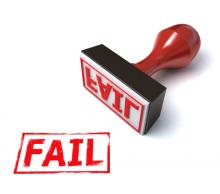humility

ONE OF THE paradoxes of writing about film is the application of one form of language to interpret another. The medium we’re discussing here is visual, and despite the relevance of the word “poetic” to the great works of cinema, to interact with the movies means, as writer-director John Sayles says, to “think in pictures.” In an age with multiple ways to consume films, and the pressure to respond with the immediacy of social media, to think deeply about movies is a countercultural act.
I noticed this again after being given a record player a few weeks ago. I’ve listened to Van Morrison’s Astral Weeks more than pretty much any other album over the past 20 years and now on the vinyl recording I can actually hear instruments I’d never noticed before. I can’t deny the superiority of the medium, at least in terms of what we might call “musical richness.” But digital transmission makes the sound crisper and more available.
There’s a parallel paradox with cinema, in that the experience of watching films has both diminished and expanded over most of our lifetimes. There are more portals than ever (you can watch Yasujiro Ozu’s Tokyo Story or Alfred Hitchcock’s Vertigo on your phone, for goodness’ sake). Yet the opportunity to see films in optimal settings (decent projection, focused audience, without 25 minutes of commercials for soda mingling with threats of prosecution directed at the people who have paid to see the film by the industrial complex that depends on them) doesn’t come often for most of us. Without conscious resistance, the flattened culture of entertainment globalization is going to continue to dominate.

Editor's Note: This post was adapted from Sunday's message at The District Church in Washington, D.C.
Psychiatrist M. Scott Peck writes in his book The Road Less Traveled that one of the stages of growing up is “giving up the distorted images of one’s parents” — in other words, realizing that they’re not perfect. This also holds true for other leaders in our lives. We learn that our political leaders, our youth group leaders, our mentors, our teachers aren’t perfect. This isn’t always a bad thing, because sometimes we feel like our leaders let us down, but it’s actually because we had unrealistic expectations of them — such as being perfect, such as never making mistakes, such as not doing everything you want them to do.
(Pretty much nobody I know does everything I want them to do. That doesn’t make them failures; that makes me have to examine what kind of expectations I’m putting on them!)
So I’m not talking about that kind of let-down. I’m talking about those situations we’ve all experienced where we’ve been let down by some kind of failure on the leader’s part. Just this week, Pastor David Yonggi Cho, the founder of one of the largest churches in the world — 750,000 people, and he’d been pastor there for almost five decades — was found guilty of embezzling almost $12 million . I’m talking about that kind of let down. I’m talking about:
- a father who wasn’t present—physically or emotionally,
- a pastor who had an affair,
- a youth leader who ended up turning away from God.
Those are the ones that are most devastating, right? But it doesn’t even have to be that dramatic. It could be a small group leader who wasn’t present when you were going through something, a supervisor or boss at work who doesn’t listen or seem to care.

This past year taught me so much about the gospel and caused me to go deeper into my faith. As this new year begins, here are five spiritual resolutions I learned from last year:
1. Return to the gospel. Gordon Cosby, the founder and pastor of The Church of the Saviour in Washington, D.C. passed away in early 2013. He was a mentor, elder, and spiritual director to me. I miss Gordon greatly and often have things I would like to talk with him about. But I usually know what he would say to me and it would always be about returning to the gospel. In his last sermon, spoken from his death bed, he spoke of Jesus’ “clear and frightening statement that the last shall be first and the first shall be last.”

I sympathize with the Cheney family this Thanksgiving. Siblings arguing with each other and claiming that Dad is on their side — geez, sounds too familiar for comfort. I have four siblings and when we were kids we were a rough and tumble pack, openly vying for our parents’ approval. We relished ratting each other out. The fickle finger of accusation waving wildly, we’d shout things like “She started it!” “It was his idea!” or “I told her you’d be mad!” Oh, we had a million ways to stay in our parents’ good graces.
You’d think it all might have been about avoiding punishment, and I guess that was part of it. But even though our parents can’t ground us anymore, we tend to search their faces as if we were contestants awaiting our score on Dancing With the Stars. Now we tease each other about who is in the No. 1 spot at any given moment, and how it shifts with a good deed done or misstep in our duty as loving offspring. (FYI, I am taking my parents to see A Christmas Carol at the Drury Lane Theater near Chicago and making them a prime rib dinner afterwards. That should vault me to No. 1 for a week or two!)
The holidays are a perfect arena for this sort of combat and we can take some small comfort that even the Cheneys are not immune. But their problems are not quite like ours, because they are a public family and their disputes have political ramifications. Who wins the Cheney dinner table argument about marriage quality is not just about their family. It resonates through Republican politics and if Liz Cheney becomes their next senator, it may be about Wyoming families as well. But in another way, this family rivalry is like any other because it’s not just about politics. Mary Cheney and her wife, Heather Poe, who have two children together, feel betrayed by Liz. As Heather posted on Facebook: “Liz has been a guest in our home, has spent time and shared holidays with our children, and when Mary and I got married in 2012 – she didn’t hesitate to tell us how happy she was for us.”

Alec Baldwin was caught on video venting his rage against a photographer and using a homophobic slur. I actually don’t follow Alec on Twitter or keep up with celebrity news on TMZ, but apparently he’s put similar slurs in writing. In this case, however, he denies using a homophobic slur, saying he is being misquoted. And as proof that he is not homophobic, in fact just the opposite, he points to his work on behalf of marriage equality with GLAAD. In defense of his actions in the video, he insists he was only defending his family’s privacy — in the video we can clearly hear him shouting at the photographer to stay away from his wife and his baby. Here’s a brief excerpt from his blog post in which Baldwin expresses his desire to protect his family and neighbors from media harassment:
I am concerned for my family. In Bloomberg's New York, forty or fifty paparazzi are allowed to block streets, inconvenience homeowners, workers and shoppers, and make life miserable for my neighbors. Photographers have tripped and fallen on babies in strollers on my block. They have nearly struck my wife in the face with microphones. They provoke me, daily, by getting dangerously close to me with their cameras as weapons, hoping I will react. When I do, the weapon doubles as a device to record my reaction. And then, apparently, I lose every time.
And here’s what the prominent blogger Andrew Sullivan had to say. He is among many who called for accountability from Baldwin, GLAAD and his current employer MSNBC. (At this writing MSNBC has suspended Baldwin’s show for two weeks.) Here’s what Sullivan said:
Look: Baldwin’s anger… was thoroughly merited. But he continually resorts to this kind of homophobic poison when he’s angry. Just as Mel Gibson revealed his true feelings about Jews in his drunken rant, so Baldwin keeps revealing his own anti-gay bigotry. These outbursts reveal who he actually is. (Emphasis in original)
So which is it? Is Baldwin a raging (literally) homophobe or is he a decent guy protecting his family and neighbors? Whenever I encounter an either/ or choice like this, I know I am in the presence of a possible scapegoating incident for three reasons.

There is no mistaking it: Shad Kabango's music is authentic and tenacious. With incredible humility, he speaks from his heart, with no fear of calling out the inconsistencies he sees in the world.
In the recent release of his 4th studio album, Flying Colours, the critically acclaimed Canadian emcee, better known as simply "Shad," hopes his music speaks for itself.
"It’s not easy to summarize or convey, I don’t think," Shad said of the theme of the album, in a recent interview with Sojourners. "Some sort of … feeling of hope, I guess, but hope within the complexity of real life and the challenges of real life."

Pope Francis has once again given a startlingly candid interview that reinforces his vision of a Catholic Church that engages the world and helps the poor rather than pursuing culture wars, and one “that is not just top-down but also horizontal.”
The pope’s conversation with Eugenio Scalfari, an atheist and well-known editor of the Italian newspaper La Repubblica, took place at the pope’s residence in the Vatican guesthouse on Sept. 24 and was published on Tuesday.
His newest bombshell come just two weeks after the publication of the pope’s lengthy, groundbreaking interview with a Jesuit journalist in which Francis said the church was “obsessed” with a few moral issues, like abortion and homosexuality, and needed an “attitude” adjustment if it hopes to strike a “new balance” in its approach to the wider world.

I had a series a while back about the Christian Cliches that we should drop from our lexicon, and since then I’ve had people ask what they should be saying instead. So here’s a list of handy phrases to help bring followers of Jesus into a post-Christendom, 21st-century world.

For Catholics—and many others—what happens in Rome doesn’t stay in Rome. The seating of a new pope has the power to affect believers across the globe, in ways direct, indirect, and unpredictable. And when a surprising sea change occurs in a hide-bound, steeped-in-tradition place like the Vatican—the unexpected resignation of a pope, the selection of a Jesuit from the Americas as his replacement, and the powerful symbolism of a new leader who literally stoops to wash a Muslim woman’s feet—people of faith of all traditions sit up and take notice.
In these early days of Francis’ papacy, we asked three prominent Catholic thinkers and leaders to help us understand what it all might mean. How will the spirit of reform that has marked Pope Francis’ first few months in office affect the worldwide church? Will change at the top trickle down to parishes and neighborhoods here in the United States and elsewhere? And what will Francis’ leadership mean not only for Catholics, but for all people of faith engaged in the work of making justice and building peace? —The Editors
CATHOLICS AROUND THE WORLD are transfixed by Pope Francis. We love his simplicity of life, his humble faith, his welcoming attitude to all, and his way of being Christian in the contemporary world that takes its bearings from the poor. Lace and gilt are no longer fashion statements at the Vatican. From his small apartment, the pope speaks bluntly about worrying less about rules and more about love. An utterly refreshing breeze blows through the Catholic Church.
But what does it really mean for Catholics today? The church still reels with the moral and spiritual damage done by members of the clergy as perpetrators or accomplices in the sex abuse scandals, from fiscal mismanagement, and from institutional infighting. Does Pope Francis change that? And what does the new pope signify for the young, for women, and for the many issues that vex the church’s engagement in today’s world?

I WAS 15 when Pope Paul VI died in 1978. He’d been pope my whole life. Elated at the election of John Paul, I followed his papacy with all the obsessive focus of a teenager. When he died 33 days later, I simply didn’t know what to think. (His book Illustrissimi, a collection of letters written to saints, novelists, and artists, is one I return to for insight on Catholic imagination.)
During John Paul II’s 27 years as pope (the second longest reign in papal history), a dangerous nostalgia for a pre-Vatican II church was encouraged to flourish.
Under Pope Benedict XVI, that nostalgia came to fruition. The Latin Mass was re-established in many parishes. Amid a worldwide sex abuse scandal, liturgical correctness and “fancy dress” were too often elevated over children’s protection, victims’ needs, and institutional transparency. Women and girls were pushed further off the altar. To be gay, female, divorced, or a single mother—all these pushed one further from the table of the Lord, rather than drawing one nearer.
And now we have Pope Francis. When Jorge Mario Bergoglio announced he would take the name Francis, after Francis of Assisi, I wept. To have the Poverello (the “poor one”) at the center of our Catholic faith is right and just—whether that poor one is a 13th century itinerant preacher or a child in the villas miseria around Buenos Aires.

Over the last several weeks, I’ve been trying to figure out exactly why I feel so bothered by Sheryl Sandberg’s book, Lean In.
I suggested to my husband that maybe I’m being defensive since I am an educated woman in a professional field who has very clearly chosen to “lean out” to spend more time at home.
Or maybe it’s because I disagree with putting any degree of blame for inequality in the workforce on women.
Or maybe it’s because I don’t like the idea of human capital.
None of those reasons, however, seem to explain why the book and the phrase “lean in” have become such an obsession for me. I certainly consider myself a huge proponent of equality and women’s rights. I have marched, protested, researched, worked toward, and fought for true equality for women all of my adult life.
So my discomfort with Sandberg’s book isn’t because I’m anti-woman or anti-feminist. It isn’t because I disagree with her and want all moms to stay home and bake cookies and volunteer for PTA. It isn’t even because I feel the need to defend my choice to be a 99-percent stay-at-home mom. Instead, it’s because, as a Christian, I believe that the whole idea of “leaning in” does not take into account the principle of putting others before self. (Phil. 2:3-8). This principle applies equally to both women and men.
(Caveat: neither women nor men should be trapped into subservience by children and/or spouse. I am talking about putting the real, rational, and loving needs presented by being part of a family before one’s individual needs.)

We're anticipating.
We're jubilant!
“Hosanna in the highest! Blessed is he who comes in the name of the Lord!”
So, we dance and we sing.
But just before this moment in the story there's this surprising passage. The Gospel of Luke reads, "As they were listening to this, he went to tell a parable, because he was near Jerusalem, and because they assumed that the kingdom of God was to appear immediately."
"Immediately." Well, at least they knew their own minds. This is the trouble about knowing our own minds. It's not the same thing as having a thesis with a well constructed argument. And it's not the same thing as being right.
IT WAS AS if the poison of the rancorous 2012 campaign had seeped into our social groundwater, tainting family gatherings, Facebook feeds, church coffee hours, and workplace lunch rooms. In my lowest moments I pictured an election-result map rendered with myriad fractures, like windshield glass—a nation of particles and fragments, held together, barely, by begrudging surface tension.
How do those of good will find productive and respectful ways to talk about important civic and moral issues when a significant number of people view their fellow citizens as enemies?
Two recent books, by radically different authors, explore how to stay committed to your principles while reaching out and even finding common cause with those who live and believe differently.
ReFocus: Living a Life that Reflects God's Heart, is by Jim Daly, president since 2005 of Focus on the Family. Faitheist: How an Atheist Found Common Ground with the Religious is by Chris Stedman, the assistant Humanist chaplain at Harvard University and an activist in atheist-interfaith engagement. Daly leads a conservative evangelical institution that has been a major player on the Right in the culture wars of the past three decades (including around what Focus would term the "homosexual lifestyle"). Stedman is a young gay atheist who was once attacked by thugs who shouted Bible verses as they tried to shove him and a friend in front of an oncoming train. And yet both men argue, from both pragmatic and ethical grounds, for actively and respectfully engaging those who hold different beliefs.

I think we’re terrified of failures for the same reasons we’re scared of death, or any type of palpable ending, for that matter. Failure, at its heart, really is a small death. And who wants to go through that if they don’t have to? I’m not saying that we should set ourselves up intentionally to fail, but I get the sense that, more often than not, the fear of the possibility of failure keeps us from really living well. And really when you think about it, if you never fail, you may never figure out where your limits are. What a boring, uninspiring way to live.
So here are some reasons I’ve decided that failure isn’t just inevitable or necessary, but that it’s actually kind of wonderful.

It is difficult to discuss "hard topics" with people with whom I disagree.
When someone supports a political candidate whom I resist, holds to a theological understanding that I find confusing, or when I hear opposing points on climate change, poverty, global economics, human sexuality, etc., it is challenging to listen with a genuinely open ear.
However, what I have found is that, even if I feel passionate about a particular point of view, when I am able to open up and genuinely listen to others, great things take place throughout the exchange. Through honest and open interaction, an increased level of mutual respect and understanding is achieved, we learn to understand why things are perceived the way they are, and the overall strength of the relationship grows.
In our current North American climate of political polarization, religious division, and socio-economic seclusion, it is time to have more dialogue on — among other things — dialogue.
A friend of mine once said, “a true and genuine dialogue only takes place when each person is willing to be ‘converted’ to the other side of the argument.” At first I was skeptical of this remark, as I wondered how I could ever open myself up to being “converted” on certain topics about which I felt strongly. But now I am beginning to see the wisdom in such a statement.

Ah, the life of the church. So many arguments, so little time.
The list of subjects about which the saints disagree is seemingly endless, encompassing both the profound and the woefully mundane.
The ordination of women. The proper role of religion in politics. Climate change. Homosexuality and same-sex unions. Pre-, Post-, or A-millennialism. Biblical translation. Gender pronouns for God. How best to aid the poorest of the poor. How best to support the sanctity of marriage. Hell. Heaven. Baptism. Which brand of fair-trade coffee to serve in the fellowship hall. The use of “trespass/es” or “debts/debtors” in reciting the Lord’s Prayer. Whether to use wafers, pita, home-baked organic wheat, gluten-free or bagels at the communion table. What color to paint the narthex.
It should come as no surprise to most Christians that the world outside the church looking in sees it rife with conflict, bickering, arguments and castigation — of the “unbeliever” and fellow believers alike.
Frankly, it also should come as no surprise to the rest of the world that the church — by virtue of being a community of humans — naturally would have such disagreements and discord.

Today is the Feast of Christ the King, the last Sunday in our church year.
I always find it a strange feast to celebrate in a democracy, in which the whole point is that we do not have kings, but shared authority vested in the people and temporarily delegated to elected leaders. What does thinking about Jesus as a King mean to folk like us?
This year it is particularly strange, for, with the exception of the marriage of William and Kate, this has been a bad year for kings. Monarchs, tyrants, plutocrats, and autocrats of every stripe have found themselves under assault from a powerful wave of populism, as the citizens of country after country have risen up to hold their leaders accountable for their stewardship of their nations. Throughout the Middle East and in parts of Europe and the United States, the official narrative of power has been held up and judged against another set of ideas, one that speaks of fairness, liberty, and raising up the poor. Ruler after ruler has heard a cry that translates, roughly: “as you did it to the least of us, so shall it be done to you.”
Christ is a different kind of king, and his authority always calls our leaders to account, whatever the form of our government or our political preferences. Christ embodies a form of leadership that is rarely seen in our world. In the ordinary scope of things, our leaders wear nice suits and inhabit the corridors of power and cut deals with the wealthy and the powerful. Christ, however, threw in his lot entirely with those whom the doors of power shut out. He would talk with anyone, eat with everyone, and, in the end, died among the refuse of his people. He was a leader who led from below.
Deep down I don't believe in the separation of church and state. Oh, I am against the idea of a state church or giving political preference to one religious sect or another, but it's the idea that somehow people can divorce their religious identity from their political identity that I just can't accept. That either our religion or our politics mean so little to us that we could restrict them to compartmentalized spheres in our lives seems absurd to me. I know people attempt to do it all the time, believing in the modern myth that an individual can assume an objective stance in this world, but reality is a lot more complex than that.
John Stott died this Wednesday. He was 90 years old. What many people don't understand is that he was the most influential 20th-century evangelical leader in the world, with the exception of Billy Graham. Stott became the Anglican rector of All Souls Church in downtown London at the age of 29 in 1950, and he stayed there for his entire ministry. But from his parish at Langham Place in the city's West End, and right across from BBC headquarters, John Stott spoke to the world with 50 books that sold 8 million copies. He also traveled the globe , speaking, teaching, convening, mentoring, and bird watching -- a personal passion.
Perhaps the most telling thing about this man is all the personal stories about "Uncle John" that the world is now hearing, from many Christian leaders around the world who were profoundly influenced, encouraged, and supported by John Stott. And secondly, how such a giant in the Christian world remained so humble, as testified to by those who knew him who say how "Christ-like" he was.